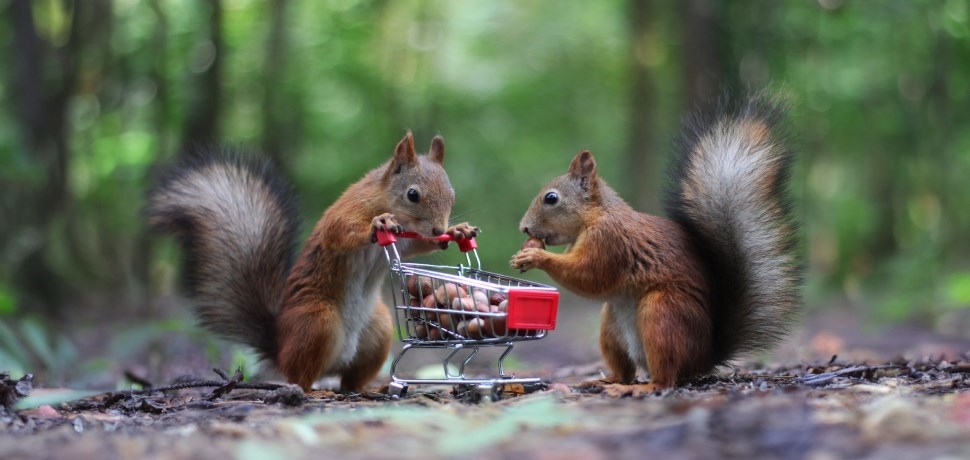Learnings from squirrels: A blueprint for a resilient portfolio
By examining how squirrels gather and store their food, investors can gain valuable insights into creating a well-balanced and resilient investment portfolio.

Squirrels are often celebrated for their resourcefulness, particularly in how they search and store food. Their strategies for managing their food supply can be surprisingly analogous to investment principles of security selection and asset allocation. By examining how squirrels gather and store their food, investors can gain valuable insights into creating a well-balanced and resilient investment portfolio.
Diversification in Food Gathering
Squirrels gather a wide variety of food which includes acorns, walnuts, and hazelnuts. When squirrels store their food, they choose various locations to hide them. This strategy minimizes the risk of losing their food to predators or environmental factors. This diversity ensures that they have a balanced diet and reduces the risk of relying too heavily on any one type of food. Similarly, in the management of our multi-asset funds, we aim to diversify the portfolios across different asset classes such as equities, bonds etc. This diversification helps to spread risk and avoid overexposure to any single investment and thereby enhancing the stability of returns over time. By focusing on appropriate risk at the appropriate time, we strive to align our asset allocation with changing market conditions to achieve optimal results.
Seasonal Adjustments and Strategic Planning
Squirrels are highly attuned to seasonal changes. In summer, they focus on gathering as much food as possible, while in winter, they rely on their stored reserves. In a similar fashion, we adjust our strategy based on economic conditions and market cycles. For instance, during periods of economic growth, a focus on growth stocks might be advantageous while during downturns, shifting to more conservative investments like bonds or cash can be a place of safety which in turns helps provide stability of returns in the portfolio. All things considered, making these adjustments ensures that our portfolio remains resilient and well-positioned to weather different market environments.
The Role of Patience and Persistence
Squirrels invest considerable time and effort in gathering and storing food, demonstrating patience and persistence. Likewise, we evaluate our investments with a long-term perspective in mind. We also apply the discipline to stick to a well-thought-out plan. While we agree that short-term market fluctuations can be tempting to react to, we believe maintaining a focus on our long-term strategy based on thorough research and careful planning usually yields better results.
Adapting to Environmental Changes
Squirrels adapt their foraging strategies based on changes in their environment. They periodically check their food caches to ensure their supplies remain intact and accessible. They might alter their behaviour based on the availability of food or changing weather conditions. We regularly monitor our portfolios to ensure they remain aligned with our stated goals and risk tolerance
Learning from Experience
Young squirrels learn from the older, more experienced ones, improving their foraging skills over time. Our funds are managed by a team of experienced members who are informed about market trends, who have knowledge and experience from past market cycles as well as past investment mistakes which has enhanced investment decisions and strategies. The ongoing education and experience gained by the younger team members from the more experienced members ensures continuity.
The Importance of a Balanced Portfolio
Squirrels aim to maintain a balance between gathering and consuming food. They avoid over-stocking or under-stocking their caches. In investing, achieving a balance between various asset classes is crucial. A well-balanced portfolio includes a mix of equities for growth, bonds for stability, and other investments to meet specific goals.
The Value of Long-Term Planning
Squirrels plan for the future by preparing food supplies well in advance of winter. Similarly, we have our strategic framework that helps guide us in achieving our funds objectives over the long-term. Our strategic framework acts as a guide in investment decisions and helps us maintain focus amidst market fluctuations.
Conclusion:
In Conclusion, squirrels’ approach to food management offers valuable lessons in investment portfolio management. By applying principles of diversification, strategic planning, risk management, and adaptability, investors can build resilient portfolios that withstand market fluctuations and achieve long-term success.